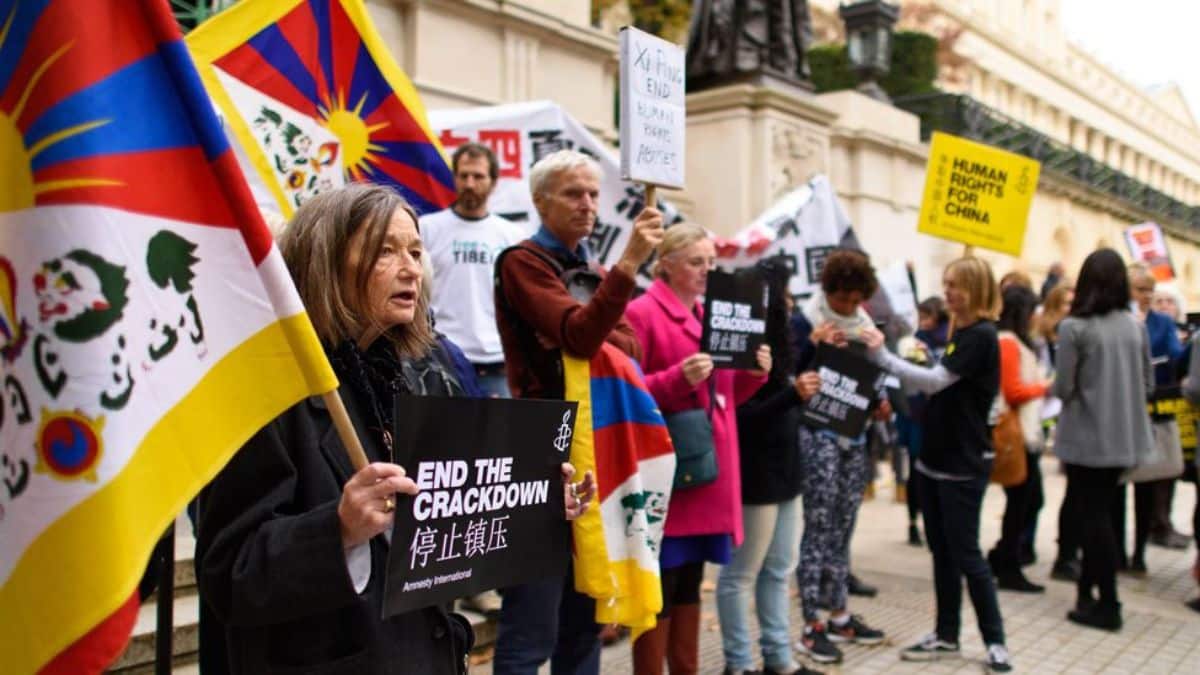On Tuesday, the United Kingdom, and the United States criticized China’s human rights record during an examination of its policies at the United Nations.
The UK urged China to halt the persecution and arbitrary detention of Uyghurs and Tibetans, emphasizing the importance of freedom of religion, and cultural expression, and the prevention of surveillance, torture, forced labour, and sexual violence. Similarly, the U.S. called for the release of arbitrarily detained individuals and the cessation of forcible assimilation policies, including boarding schools in Tibet and Xinjiang.
These recommendations were presented as part of the UN Human Rights Council’s universal periodic review, a mechanism that allows member states to assess each other’s human rights records every five years. In the given 45 seconds allotted to each country at the UN headquarters in Geneva, concerns were raised about China’s actions since 2018, a period marked by significant protests in Hong Kong and heightened international scrutiny of human rights violations in Xinjiang.
The UK specifically called for the repeal of the national security law in Hong Kong and demanded the dropping of charges against pro-democracy activist Jimmy Lai. The meeting marked China’s first universal periodic review since the UN’s report on Xinjiang was published in August 2022, revealing “serious human rights violations” against Uyghurs. China dismissed the report as “disinformation.”
In response to the recommendations, China’s UN ambassador, Chen Xu, attributed concerns to misunderstanding or misinformation, accusing some countries of baseless accusations fueled by ideological bias. Several nations, including the UK and the U.S., highlighted China’s policies in Xinjiang and Tibet, regions synonymous with Beijing’s repressive treatment of religious and ethnic minorities.
Despite the critical stance adopted by some nations, smaller countries economically dependent on China praised its rights record, lauding achievements in poverty alleviation. Ethiopia commended China for improving its criminal litigation system, while Iran appreciated China’s economic programs promoting social, cultural, and economic rights.
Human rights activists expressed concerns about the increasing influence of Chinese government rhetoric in recommendations made by governments, suggesting a level of influence in the process. The spokesperson for the World Uyghur Conference criticized Muslim-majority countries for their failure to speak out against the abuses faced by Uyghurs, Kazakhs, and other minorities in Xinjiang.

